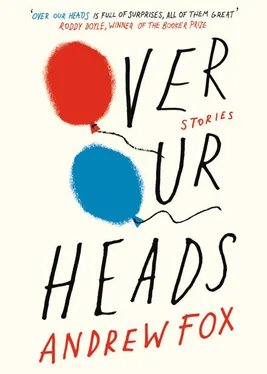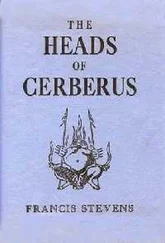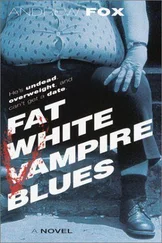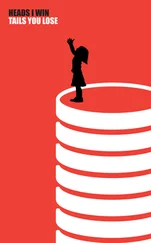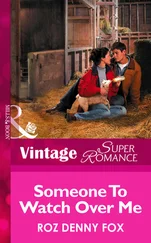Andrew Fox
Over Our Heads
My mother had been in secret talks with someone on the phone all week, but it wasn’t until she brought out the good tablecloth that I knew I was being set up. She smoothed out the creases, arranged cutlery and plates. And when the doorbell rang, she went to bring him in: a stretched, paler version of the kid from junior school who used to eat his slimy ham sandwiches alone in a corner of the yard. I hadn’t thought about Alan in years. I, like everyone else, had forgotten all about him.
His hair and his eyes were colourless, but a fat bruise purpled his cheek. He forked over Mam’s grey chicken casserole and mumbled bullshit compliments. We talked in awkward spurts about birthday parties that only my mother remembered. My father, still chewing, left to watch the news in the sitting room. And then, when Alan excused himself to go to the toilet, Mam made tea and laid it on thick with:
‘He’s really a wonderful boy, you know. I was always very fond of him.’
‘Yeah,’ I said, watching milk flower in my cup, ‘but he’s creepy.’
Mam sat beside me, leaning close. Alan’s mother, she said, had been having trouble with her nerves for years, even before the divorce and the move away to Dublin. She was staying for a month or two with a sister out in Galway, and had sent Alan back to spend the summer with his father. As my mother spoke, her eyes watched mine, her lips curving in a smile that described to me my own perfection.
‘And I’m sure,’ she said, ‘that being seen with you would do wonders for his street cred.’
Of course, I knew what she was trying to do. But she knew me better.
‘That’s true,’ I said.
My mother. I swear to God, she should have gone into politics.
That summer I was working at the Lifeboat, a pub on the harbour road. The customers there were men from the trawlers, big fellows with cloudy eyes and hard cheeks webbed in veins. Their hands shook as if groping for the salvation the pub’s name seemed to offer, though there wasn’t one among them who could have been redeemed. I collected their empty glasses, gave them change for cigarettes, listened to their opinions and suspicions and advice. Every day, when my shift ended, I’d need to get out a little frustration.
Alan and I started going to the train tracks to put pennies on the rails. It was something he used to do, he said, when he was younger. The tracks ran towards Dublin on an embankment between small fields. On either side, the embankment fell away to deep gulleys overgrown with bramble bushes. A dirt track ran alongside the rails, and it was this that Alan and I followed. He taught me to put the pennies on the inside edge of an easy curve, so that they’d ping into the safety of the gravel between the sleepers. I imagined that every penny I placed was someone from the pub, or sometimes Alan, or sometimes me. I’d cover my ears as the train roared by, then comb the stones to find them stretched and made anew.
One time, searching for a penny that had flown into the bushes, Alan and I discovered a cleared passage leading down into the gulley’s darkness. He edged forward, skidding as the earth slipped, then disappeared. I got down on to my arse and scooted in after him. The descent was steep, studded with rocks and roots. We found ourselves a good ten feet below the level of the tracks, in the mulchy smell of a canopied hollow sunk at the end of a cornfield. A short ridge of piled earth separated the hollow from the field, matted with long grass and strewn with blackening branches.
Alan and I rooted around among the leaves, smoking cigarette ends I’d pocketed from the Lifeboat’s ashtrays. We found bits of rusted metal, the broken sides of fish crates, old fertilizer bags, a pair of women’s underwear. We opened a plastic shopping bag to find an ancient porno, the image on its cover rain-faded and sun-bleached. The pages were stuck together and all but decomposing. The women were hairy and dead-eyed, and older than our mothers.
We stayed in the hollow for hours, making up stories about the people who had been there long before us. It was clear, Alan said, that they were perverts, and that the country did that to people. Something about the quiet here could twist you up, he said, but you weren’t safe in the city either because of all the noise. I asked him about his mother, about his friends, about his school. He asked if I knew Bill Coleman, who he said was the owner of the cornfield. Coleman, Alan’s father had said, shot trespassers on his land, and once, when he’d found a dog sniffing around his chicken coop, had levelled his shotgun at the hip and put a bullet through its eye.
Alan never came into the pub, but most days, after work, I’d find him waiting for me in front of the church, or sometimes further up the street if there was a gang outside the chipper. In time, I learned to like him, to find comfort in our routine. His voice was clear, his eyes cold. He knew things about history and politics. He never laughed.
‘The child just needs someone,’ my mother said over Sunday lunch. ‘You’re very good to be spending time with him.’
‘Just you mind you watch yourself,’ my father said as he pushed away his plate.
‘But he’ll get his reward,’ my mother said.
‘Oh, so that’s how it works?’
One night, Alan called to the house with a bottle he said he’d stolen from his father. He had a fresh bruise I didn’t need to ask about, and his breath was shallow. We passed the bottle between our sleeves on the walk out of my estate. We joined the dirt track and followed the line of the rails, our steps unsure in the dark. At the passage, we found the shapes of two girls. I felt Alan tense when he saw them, heard them giggle when they saw us. I couldn’t see their faces. Shouts rose from the hollow.
‘Come on,’ Alan said and dragged me further along.
We left the tracks at the bridge and walked the back roads for hours. We found a half-built cottage and sat on the raw concrete floor of its kitchen to finish the bottle. As the sky began to lighten, I puked through a glassless window.
‘I’m taking you home,’ Alan said and helped me to my feet.
He led us through the grounds of a ruined church, past the turn for the quarry and in the back way to my estate. In the driveway, he told me to shake his hand. I reached for it but missed. His forearm at my shoulder steadied me.
‘I’m coming in with you,’ he said.
At the kitchen table, Mam was waiting up, her arched hand poised on fingertips like a snooker player’s.
‘Is your father home?’ she said to Alan.
‘I don’t know,’ he said.
‘It’s very late,’ she said. ‘Go on to bed, the both of you.’
We took off our shoes and crept up the stairs, but Dad caught us on the landing on his way back from the toilet. He was wearing his pyjamas, the jiggle of his gut showing where he’d missed a button.
‘Let me smell your breath,’ he said and took my jaw in a heavy hand.
I blew through rounded lips.
‘Jesus Christ,’ he said.
Alan’s eyes were white.
‘Go home,’ Dad said to him. ‘Right now.’
I crawled into bed and kept a foot on the ground to stop the room from spinning. I heard my door creak open and knew that it was my mother. She stood for a long time, watching me, saying nothing. Then she left and I lay awake listening through the wall to the sound of her fighting my father.
In the morning, Dad read his paper at the table and Mam cooked a big breakfast. I choked down greasy sausages and padded myself with toast. No one spoke as we ate. But before I left for the Lifeboat, Dad told me that I wasn’t to see Alan any more.
Читать дальше
